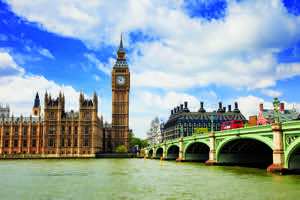OPINION: Most of the discussion about Brexit has, quite rightly I think, been about the impact of Brexit on Great Britain and its relationship with the rest of the world. Now that Teresa May has triggered the formal start of Brexit I guess we will begin to find out. My feeling is that the Brits will do very nicely thanks, if only because they have the option in principle of just turning their backs and walking out. It may turn out to cost a lot more than they thought and I daresay all sorts of uncomfortable compromises might have to be made, but the Brits have the initiative.
Not so the European Community. It has no real control over what happens next and is in the uncomfortable position of having to react rather than being proactive. The real issue is whether the European Community will survive all of this in reasonably viable form. There are national movements for the exit in other parts of the EC now and the uncomfortable truth is that the EC survives mainly because of one powerhouse member – Germany. Without Germany, the EC as we know it would certainly collapse and an interesting question is how firm the Germans are in holding on.
The uncomfortable truth too is that the other countries who might be contemplating exit are the stronger countries who think they might be able to go it alone. Those that cling on for dear life will be the basket cases like Greece, and even larger members like France might struggle without the EC for support.

Maybe the future will judge the EC as a failed experiment, or maybe it will emerge triumphant after all – I would bet on the former if it was a choice between the two.
Part of the problem is that the EC is an unnatural construct – made up of countries with strong national identities and with a long history of conflict and shifting borders. Getting that to work cohesively for as long as it has is in a sense a miracle.
Humans have a natural inclination for living in communities with which they feel an affinity – whether it be an extended family, a village, a town or so on. On the other hand, it is also the case that economically there are big advantages to size – big economies generally do matter then small economies. And there is no doubt that some world problems are too large for any one country to solve by itself – as Donald Trump is no doubt discovering. So there is a natural tension at work. Free trade and similar agreements are one way of having some of the advantages of size while keeping your identity.
There are lots of examples of countries that could combine but have not, despite any advantages there might be. There has been talk for years about New Zealand becoming a state of Australia but New Zealanders generally do not want that and have made their views clear whenever the issue has been raised. The fact is that for all the similarities between New Zealand and Australia, there are some very significant cultural and other differences. While there is a significant New Zealand component in the Australian population, it is made up of people who have made decisions as individuals to become Australian residents and in many cases citizens.
The same commentary would apply to the relationship between the USA and Canada.
And there is no doubting the very strong constituency in Scotland for this being independent of the UK.
The same issue bedevils the United Nations (UN) – that noble experiment that grew out of the world war. There is no doubt that many would like to see the UN operating as a genuine world government, and many of its programmes do outstanding work that no one country could do on its own. But it operates under the very close control of the Security Council – a club of powerful (and once powerful) nations – which in the end is driven by national self-interest. While I can’t see that changing, paradoxically it is the reason for much of the UN being successful and influential. The Security Council is the safety net that allows that to happen.
By Bas Walker
This is another of Bas Walker’s posts on GrownUps. Please look out for his articles, containing his Beachside Ponderings.









Join the Discussion
Type out your comment here:
You must be logged in to post a comment.